Quick Menu
A quick introduction to Jiaozi Snow Mountain
Yunnan is crisscrossed with undulating and often spectacular mountain ranges. The Himalayan foothills of the province's far northwest get most of the attention, but a little over 150 kilometers due north of the Spring City sits an accessible and stunning peak ripe for exploration. It is called Jiaozi Xueshan (轿子雪山) in Chinese, which translates to Sedan Chair Snow Mountain.
The name comes from the summit's profile, which when viewed from afar resembles the reclined wooden seats wealthy Chinese employed to get around during dynastic times. The suffix 'snow mountain' comes from the uppermost peak's long history of being laced with the white stuff even in the middle of summer. Topping out at an elevation of 4,247 meters above sea level, Jiaozi Mountain is reputedly the southernmost snow-capped peak in all of China.

The mountain changes moods with the seasons — famed across the country for spectacular ice-bound photo opportunities in the winter, flushed pink and red with blossoms during the spring, green and verdant during the warm and wet summer months, and mysterious and foggy during the autumn.
It is also considered one of the best places in the country to see the sun rise and set, no matter the season. For those looking to hike a mountain in Yunnan, but maybe not one that requires too much technical ability, Jiaozi Mountain and its boardwalk pathways are truly the answer.

Jiaozi Snow Mountain history
Unlike so many places in Yunnan, Jiaozi Snow Mountain does not contain any ancient shrines or picturesque villages built centuries ago. It is a decidedly natural place, and views from its soaring peaks reveal lesser summits, green with forests or terraced farmland, rolling away to the horizon.
The area has been known as a scenic spot for centuries. More than eleven centuries ago, Yunnan was ruled by a small kingdom independent of Chinese imperial rule called Nanzhao. The sixth ruler of this fiefdom, Yi Mouxun (异牟寻), placed special significance on five mountains in his realm, declaring them the most beautiful. They included peaks called Jizu, Gaoligong, Cangshan, Wuliang, Jade Dragon and Jiaozi — the last of which the king named himself.
The area where Jiaozi Mountain sits has long been inhabited by people of the Yi minority. They are the largest ethnic population in Yunnan, known for a vibrant culture that features bullfighting in some parts fo the province, as well as the fiery Torch Festival. Tribes of Yi have called the slopes of Jiaozi Mountain home for at least 2,000 years.

Geology, climate, flora and fauna
Geology: The spectacular cliffs and bluffs making up Jiaozi Mountain were formed by volcanos pushing up through a shallow see hundreds of millions of years ago. Today the basalt rock formations — created long ago by lava flows — nurture a wide variety of plants and, in turn, wildlife.
Climate: There is no particularly bad time to visit the mountain, it just depends on your preference. Snow usually begins to accumulate in November, and by mid-winter, the trees and ground are often completely covered by fluffy white banks of snow. Temperatures during this time can dip well below freezing and the wind can be intense. Make sure to dress accordingly.
The springtime thaw starts in earnest around March, and at this time the slopes of the mountain burst into color as the meadows and forests bloom with spectacular, multi-colored flowers. This is followed by the rainy season, so pack a waterproof jacket and be prepared for periods of thick and ghostly fog. From August to October is the dry season, a time of endlessly temperate, cloud-free days and nights punctuated by gorgeous star-lit skies.

Plants and animals: The forests of Jiaozi Snow Mountain are composed of all types of pine and other evergreens, but the azalea trees are the main attraction. There are more than 30 different species, each with its own unique and dazzling flowers. The largest type of azalea on the mountain grows up to 12 meters high and has blossoms ten centimeters wide.
These woods are home to musk deer, long-legged goral, pangolin, pine martens and other medium-sized mammals. The area also contains numerous bird species, including hawks, eagles, and the spectacular Lady Amherst's Pheasant and Crimson-bellied Tragopan. While encounters with these animals are somewhat rare, sightings by tourists are not unheard of. Happy hunting!

Jiaozi Snow Mountain attractions
The hike to the mountain summit is studded with different sight-seeing opportunities. Everyone begins at the visitor's center, which commands its own lovely views perched as it is at 3,140 meters. The mountain is a nationally protected preserve, and a 57 yuan entry ticket is required to enter the park and helps pay for conservation measures. From the entrance to the first visitor's center is seven kilometers, and most people take a 30 yuan bus to get there.
From the visitor's center, many next climb aboard cable cars before beginning their hike. A ride on the tram cost 35 yuan each way and cuts at least two hours off of the total journey up the mountain. All paths on Jiaozi Snow Mountain are wooden boardwalks or stairways, making the trek easier and keeping visitors from damaging the ecosystem.
Two paths depart from the cable car station, the one to the right highlighted by a series of scenic spots with poetic names. The other path is a more straightforward — and vertical — shot to the mountain's summit overlook. Both are well worth the walk. There are at least 20 sight-seeing stops, and we've featured the top five most popular below. For the location of every scenic area, see the map.
Heavenly Lake: Ringed with rocks and crystal clear, Heavenly Pond sits at an elevation of 4,150 meters. Viewed by the Yi people as a holy place, the pond bottom drops off to an astonishing 200 meters in some spots.
Waterfall Path: A series of different cascades, several of them 30 meters or taller. Each is surrounded by lush vegetation in during the warmer months and frozen solid into magnificent shapes during the winter.
Moon-shaped Cliff: A gently bowing and imposing line of cliffs. The rock formations are impressive, as is the marked change between alpine forest and highland meadow that takes place at the bluff's edge.
Azalea Forest: An endless stand of enormous azaleas stretches across this part of the mountain. When in bloom, these trees are perhaps the most colorful part of the entire Jiaozi Snow Mountain experience.
The Summit: The highpoint, both literally and figuratively, of a climb up Jiaozi Mountain. The peak has a sitting area where visitors can look out for dozens of kilometers in every direction and savor the accomplishment of reaching the top.

Lodging, skiing, eating and other tips
Hotels: Most of the lodging options near Jiaozi Mountain are actually located in the town of Zhuanlong (转龙), 40 kilometers south of the park proper. There are several choices, all of them roughly equivalent in price — about 150 yuan per night for two people. Two of the top-rated on Chinese travel sites are the Mu'a Luobai Hot Spring Resort Hotel and Luquan Jiaozi Mountain Dynamic Torch Hotel. There is also a hotel next to the Jiaozi Mountain park entrance.
Camping: Sleeping under the stars is an option at a dedicated campsite inside the entrance gate — the Sifangjing Visitor's Center (四方景游客服务中心). It is free if you have your own gear. If not, a two-person tent costs 79 yuan per night. No fires — wood-burning or camp stove — are allowed.
Skiing? The Jiaozi Mountain International Ski Resort is scheduled to open by February 1, 2018. When it does, it will be the only slope in Yunnan.
Food: The Yi people inhabit the area around the mountain and there are three local dishes not to miss — Ginseng stewed chicken, lamb hotpot and whole, deep-fried potatoes with spicy peppers. Any of these specialties can be ordered at local restaurants.
Elevation considerations: Anyone planning to climb a mountain over 4,000 meters in Yunnan should be aware of altitude sickness and know the warning signs. Travelers climbing Jiaozi who have not previously acclimated should spend at least an extra day at or below 3,000 meters getting used to Yunnan's elevation.

Getting to Jiaozi Snow Mountain
By car: For those with cars or who are willing to pay a private driver, the road trip from Yunnan's capital city of Kunming usually takes between three and four hours, depending on traffic. Cars should use the Jiaozi Mountain Dedicated Tourist Road (轿子山旅游专线). Hiring a car for up to four people for a one-day round-trip journey will cost roughly 1,000 yuan, including meals for the driver.
By bus: There are three possibilities to get from Kunming to Jiaozi Snow Mountain by bus. The first option: Chartered vehicles leave daily from the east gate of the Kunming International Convention and Exhibition Center at 7:30am and return at 4:30pm. A one-way ticket costs 60 yuan. Option two: A second choice is the bus leaving from the Yunnan Railway Museum in central Kunming. It departs at 8am and returns at 4pm. The cost for a ticket is also 60 yuan.
The third alternative: Hop a bus from Kunming's North Bus Station. This public option departs hourly between 6:20am and 4:40pm. Tickets run 40 yuan per person. Please note: This option will not drop you at the main entrance to Jiaozi Snow Mountain. Instead, it stops at the Zhuanlong Bus Station, which is 40 kilometers south of the mountain.
From the town's bus station, you will need to pay a further 30 yuan for a bus the rest of the way and they do not run on the weekends. If you arrive on Saturday or Sunday, instead grab a seat in a private taxi. The last leg of the journey should cost between 30 and 50 yuan per seat depending on how well you bargain.
All uncredited images: Kunming Jiaozi Snow Mountain Tourism Development Company Limited
© Copyright 2005-2025 GoKunming.com all rights reserved. This material may not be republished, rewritten or redistributed without permission.






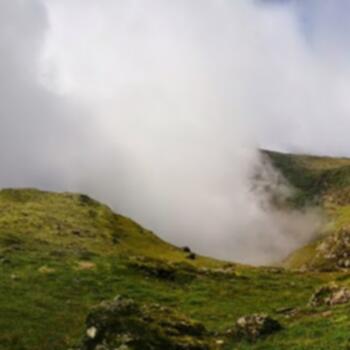
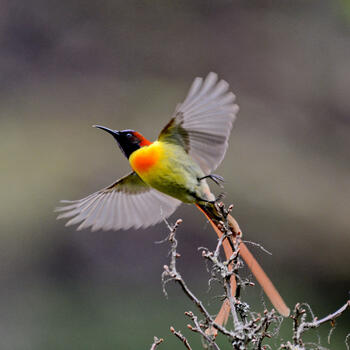
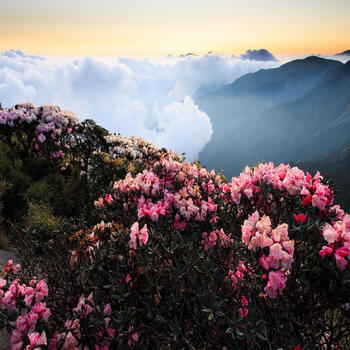
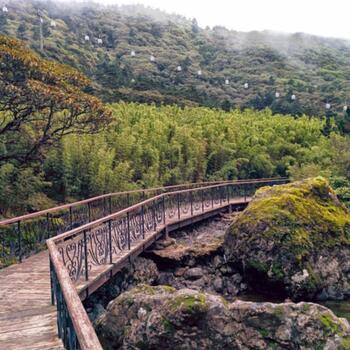





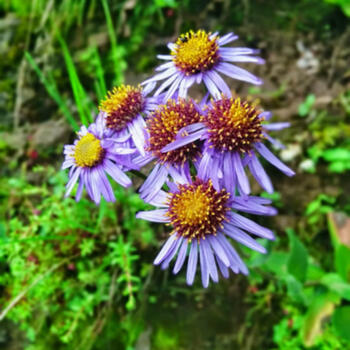



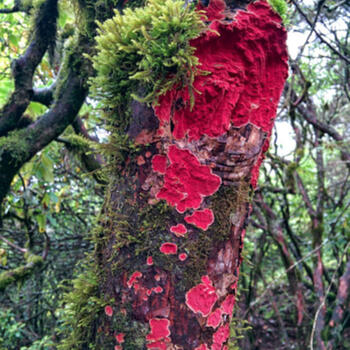
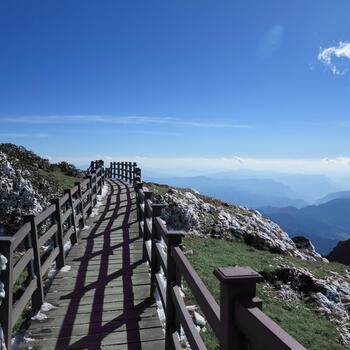


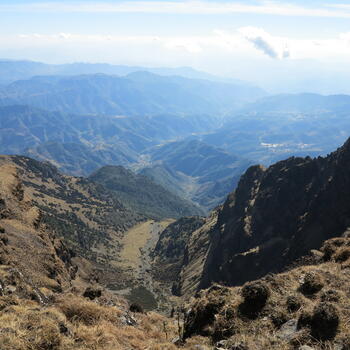
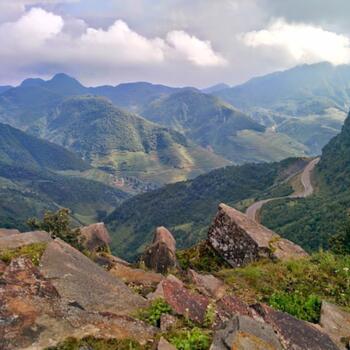

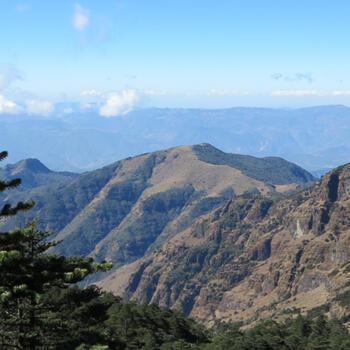
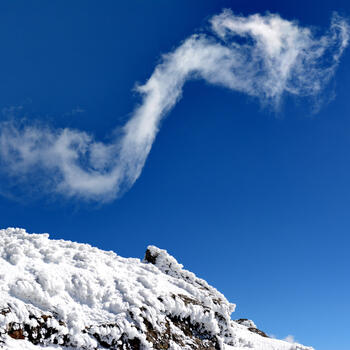




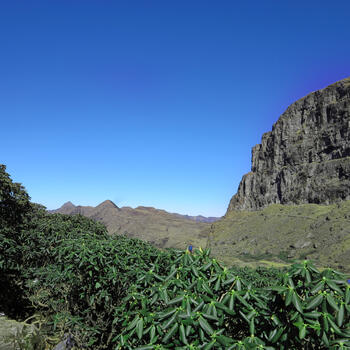




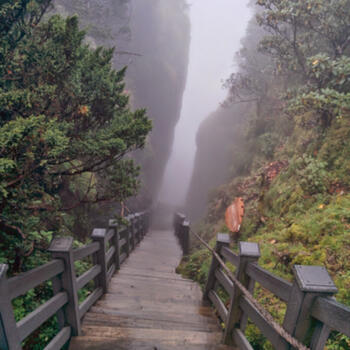












评论
ski??? cool.
Great Shots! Compliments to the photographer!
照片真棒
"The first option: Chartered vehicles leave daily from the east gate of the Kunming International Convention and Exhibition Center at 7:30am. Option two: A second choice is the bus leaving from the Yunnan Railway Museum in central Kunming. It departs at 8am."
Just want to be sure, is this options available daily or only weekend?
If choosing to take a charter bus there and back in one day, is there enough time to do the entire hike?
登录评论